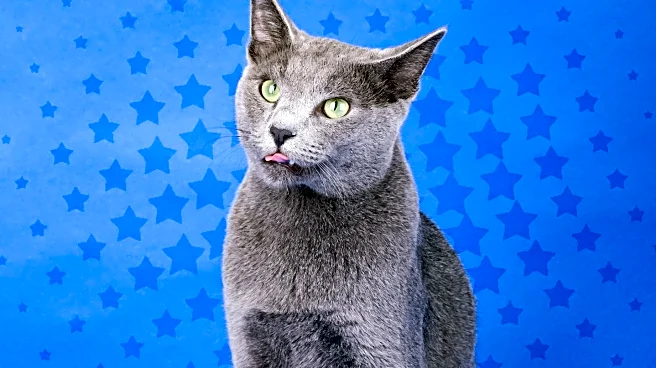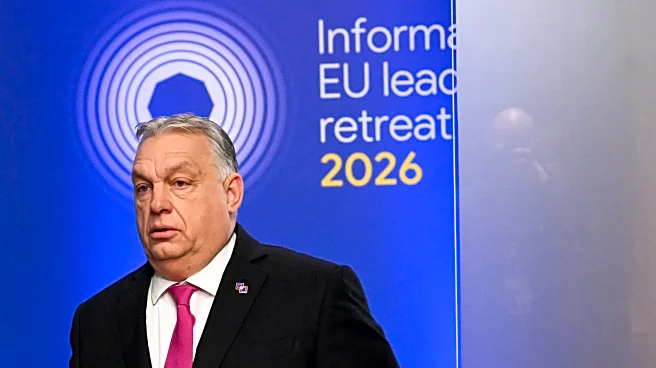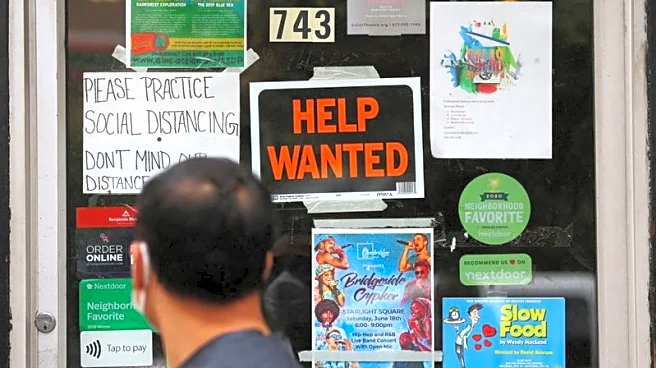What's Happening?
A cat named Echo, who was overlooked at the Yellowstone Valley Animal Shelter in Billings, Montana, has found a new home despite being blind. Echo, who had an ulcer in one eye and an infection in the other, underwent a bilateral eye removal surgery, leaving
him with no eyes and visible scars. Kay Minzel, a 26-year-old who initially visited the shelter to adopt another kitten, ended up adopting Echo after being moved by his situation. Despite initial challenges, including helping Echo navigate his new environment, Minzel has successfully integrated him into her home. Echo's story has gained significant attention on TikTok, where Minzel shared his journey, garnering over 336,500 views and 83,500 likes.
Why It's Important?
Echo's adoption story highlights the potential for animals with disabilities to find loving homes, challenging preconceived notions about their care requirements. This narrative can inspire others to consider adopting pets with special needs, promoting inclusivity and compassion in pet ownership. The viral response to Echo's story on social media underscores the public's interest in heartwarming stories and the power of platforms like TikTok to influence societal attitudes towards animal adoption. Minzel's experience demonstrates that with patience and creativity, pets with disabilities can lead fulfilling lives, encouraging more people to open their homes to such animals.
What's Next?
Echo's story may encourage more shelters to promote the adoption of animals with special needs by sharing similar success stories. As awareness grows, there could be an increase in resources and support for individuals willing to adopt pets with disabilities. Additionally, social media platforms may continue to play a crucial role in connecting potential adopters with animals in need, fostering a community of support and advocacy for special needs pets.
Beyond the Headlines
Echo's journey also touches on broader themes of resilience and adaptability, both for the pet and the owner. It raises awareness about the unique challenges and rewards of caring for animals with disabilities, potentially influencing future policies and practices in animal shelters. The story may also contribute to a cultural shift towards more inclusive attitudes in pet adoption, emphasizing that all animals, regardless of their physical condition, deserve a chance at a loving home.


















